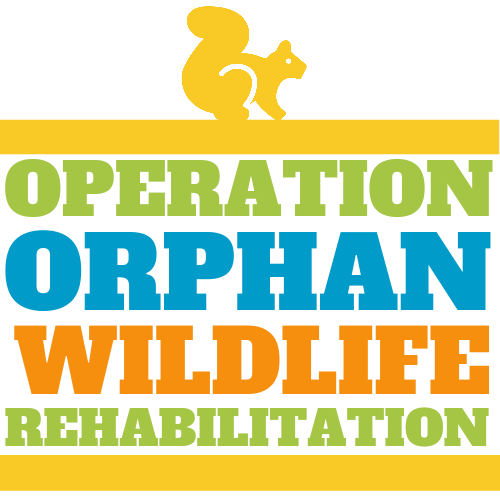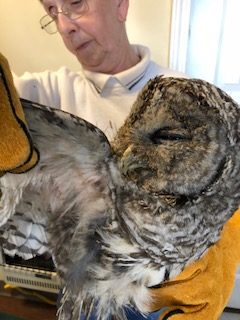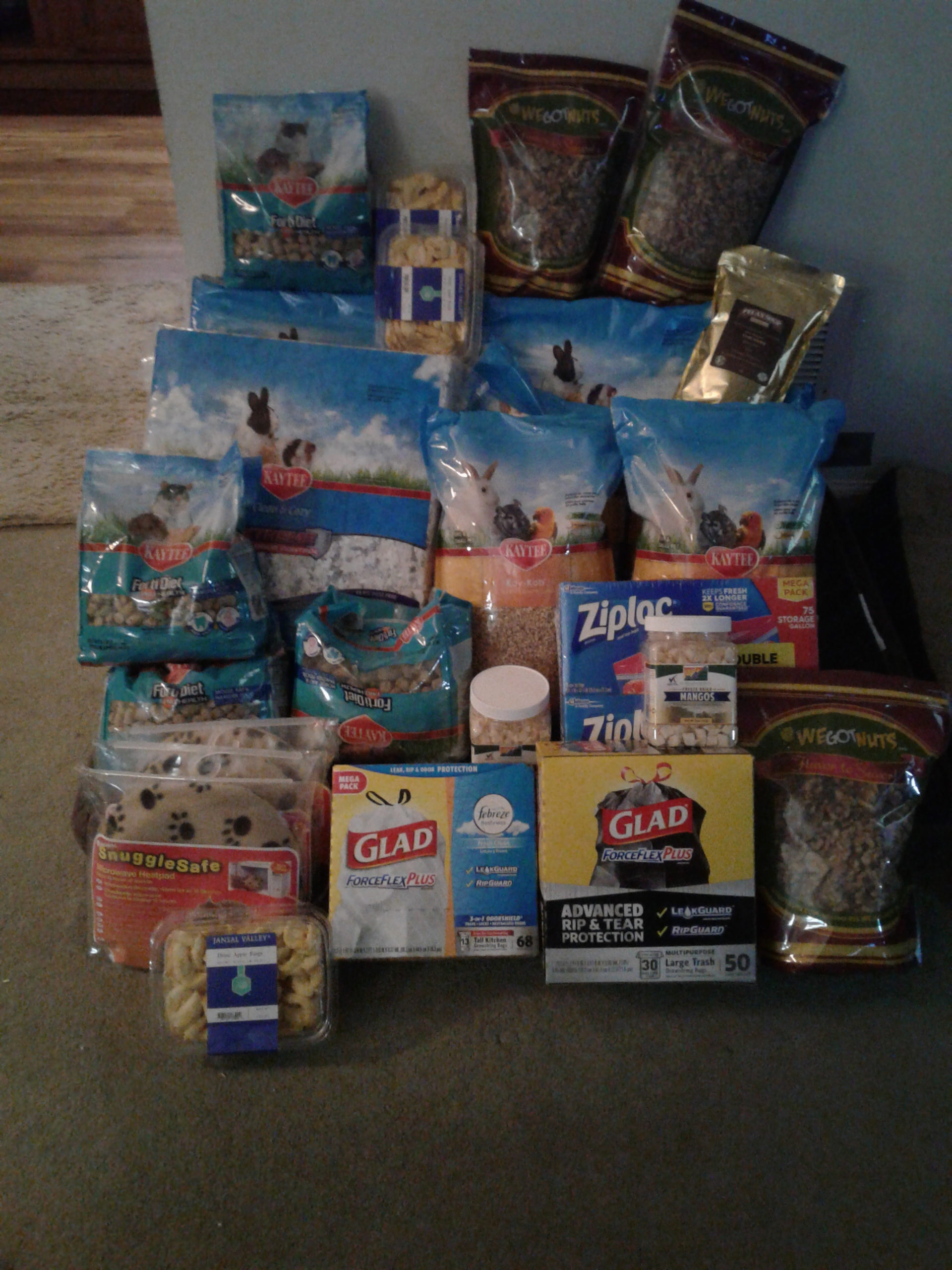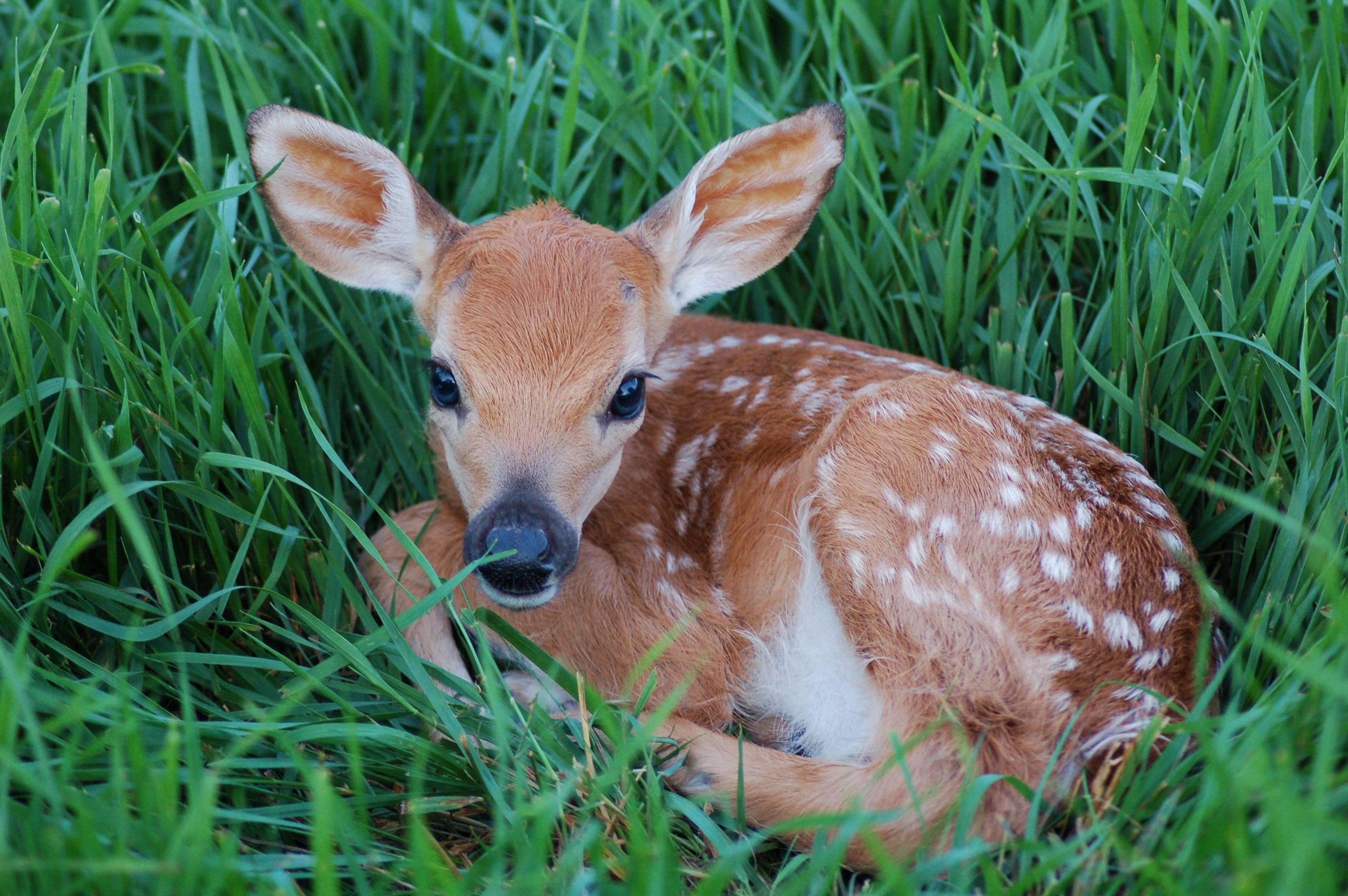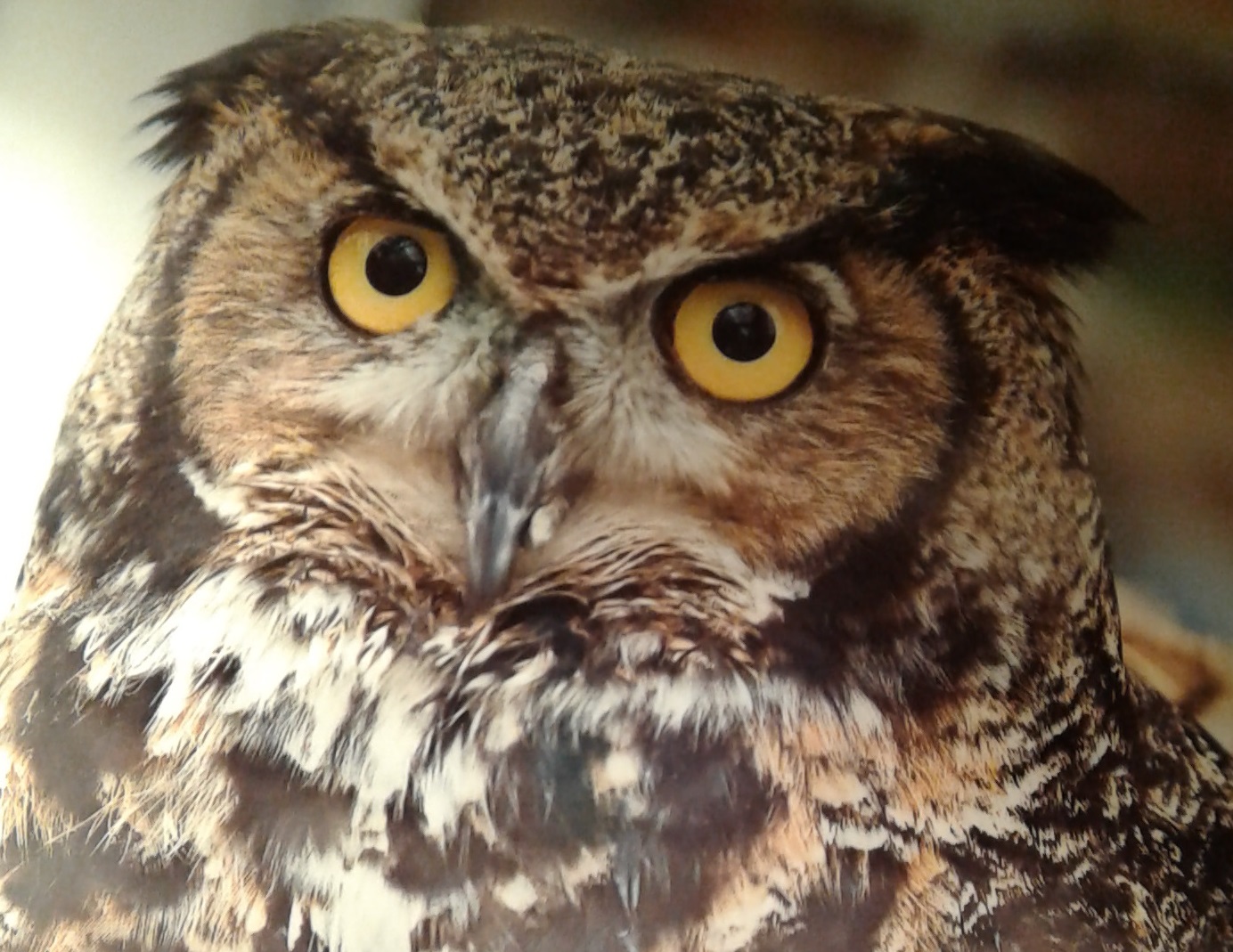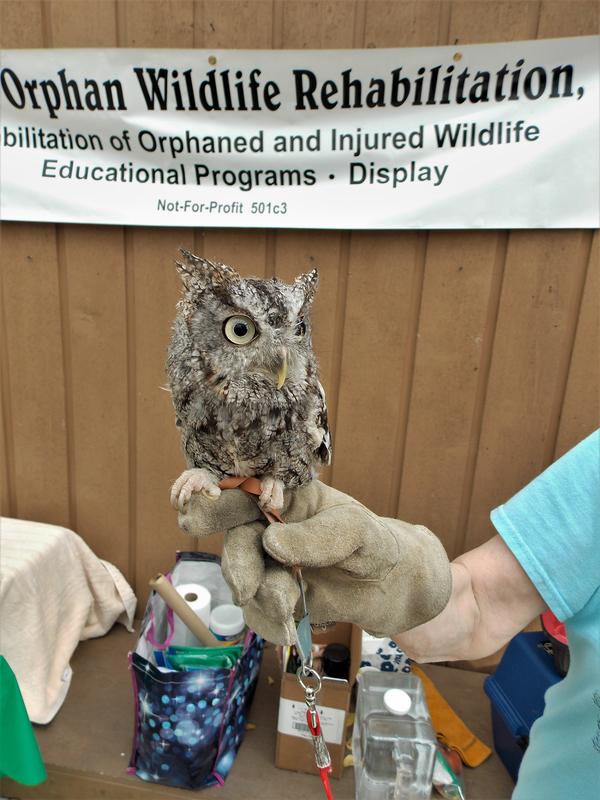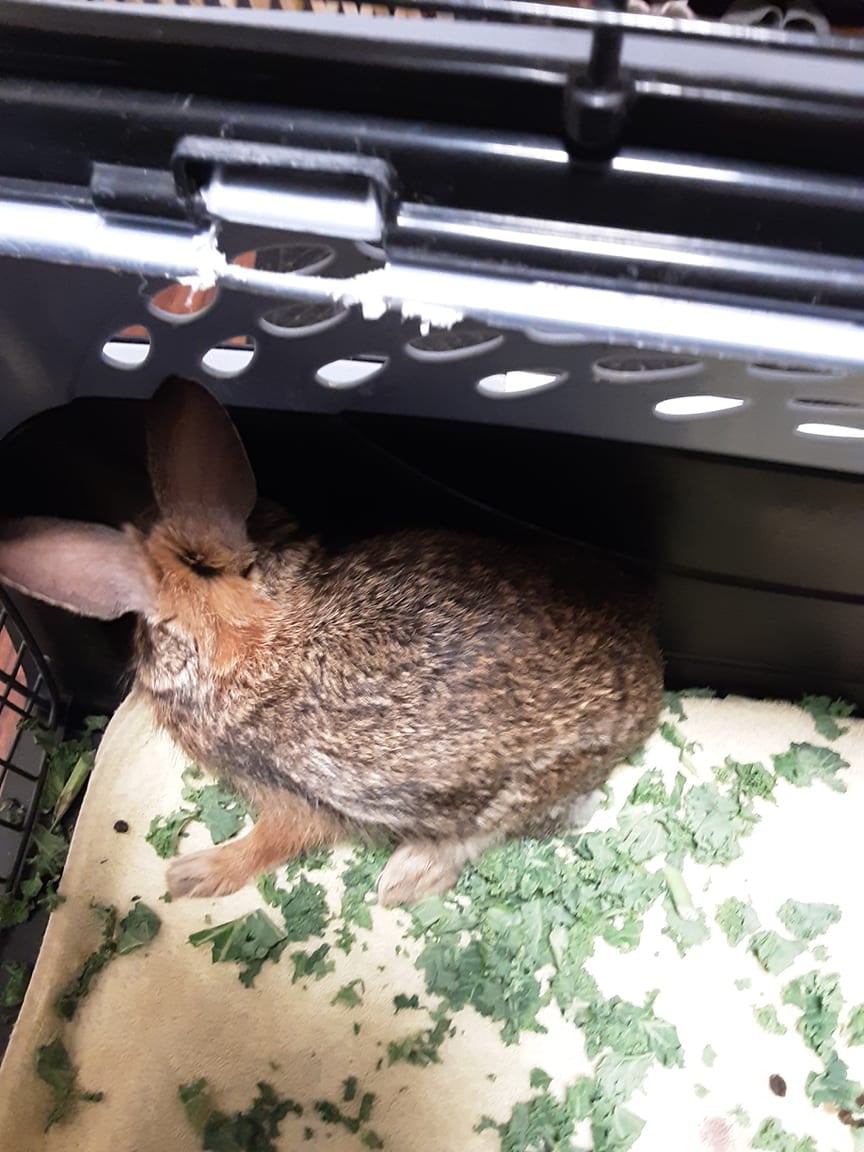Returning to the Wild
All too often I come across stories of wildlife that are euthanized, die of starvation or die in captivity due to improper care or killed by homeowners because they become a nuisance. This often happens because someone thought they could raise an orphaned animal on their own.
There is so much that goes into preparing (conditioning) an animal to be returned to the wild beyond just teaching them how to find food. Here is a story that gives you a small glimpse into the work that goes into conditioning an animal for release.
Back when it was legal for me to rehabilitate raccoons, I had three babies that were siblings, all less than a week old. From the very beginning, I would make a specific sound when I fed them so that they knew that sound meant food. When the babies were old enough to follow me, I began to condition them by taking them into the woods. I taught them how to dig in the dirt, find bugs, worms and to climb trees. I was always successful at getting them back down from the tree by making my sound for food.
One evening we were on our way back home from the woods. The babies spotted a couple walking down the street and decided they would run and greet them. Thinking quickly, I made my sound. The two females came back, but the one little male kept running. I took off running after him and caught him by grabbing the scruff of his neck. With my arm hanging straight down, I gave him a gentle shake, then opened my hand and let him fall to the ground. The youngsters stayed right by me, as close as they could, all the way home.
A couple of weeks later, I was taking them for their daily workout in the woods. This time, a man was walking down the street. The little male that did not listen before had learned his lesson: he ran up the back of me and hid behind my neck. The other two hid behind my legs. They were all praised for their good behavior.
Was I too harsh with the treatment of the male? I don’t believe so. If the raccoons didn’t learn that a human is a danger, they could end up dead. Mom Raccoon would have disciplined him like I did, perhaps rolling him or biting him too. Letting him drop was my lesson for him. He wasn’t dropped high enough to get hurt, but it sure got his attention. Like any mom, it probably hurt me more than it hurt him.
I teach the animals I raise to survive so they won’t be killed when they are released back into the wild. The three baby raccoons were successfully released back into the wild, when and where I had confidence they would survive.
This year will be 54 years that I have rehabilitated wildlife. For at least 45 of those, I rehabilitated raccoons. Yet, for the last nine to ten years the Division of Wildlife has prohibited raccoons from being raised in Summit County on account of human safety. Any county or bordering county (Summit is a bordering county) that has had raccoon rabies is prohibited from rehabilitating them.
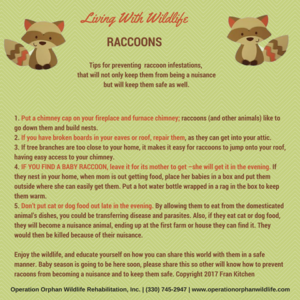 Despite not being able to take in raccoons, we still receive a huge number of calls about them every year. To prevent raccoon infestations, I would like to give you some tips that will not only keep them from being a nuisance but will keep them safe as well. If you make things uncomfortable for them, the raccoons won’t stay.
Despite not being able to take in raccoons, we still receive a huge number of calls about them every year. To prevent raccoon infestations, I would like to give you some tips that will not only keep them from being a nuisance but will keep them safe as well. If you make things uncomfortable for them, the raccoons won’t stay.
1. Please put a chimney cap on your fireplace and your furnace chimney; raccoons like to go down them and build nests.
2. If you have broken boards in your eaves or roof, repair them, as they can get into your attic.
3. If tree branches are too close to your home, it makes it easy for raccoons to jump onto your roof, having easy access to your chimney.
4. IF YOU FIND A BABY RACCOON, leave it for its mother to get – she will get it in the evening. If they nest in your home when mom is out getting food, place her babies in a box and put them outside where she can easily get them. Put a hot water bottle wrapped in a rag in the box to keep them warm.
5. Don’t put cat or dog food out late in the evening. By allowing them to eat from the domesticated animal’s dishes, you could be transferring disease and parasites. Also, if they eat cat or dog food, they will become a nuisance animal, ending up at the first farm or house they can find it. They would then be killed because of their nuisance.
Enjoy the wildlife, and educate yourself on how you can share this world with them in a safe manner. Baby season is going to be here soon, please share this so others will know how to prevent raccoons from becoming a nuisance and to keep them safe.
Copyright 2017 Fran Kitchen
Operation Orphan Wildlife Rehabilitation, Inc. is a NOT FOR PROFIT agency. It is supported solely by donations, which are tax deductible, plus memberships and educational programs. To make a donation go to: https://www.operationorphanwildlife.com/donate/
